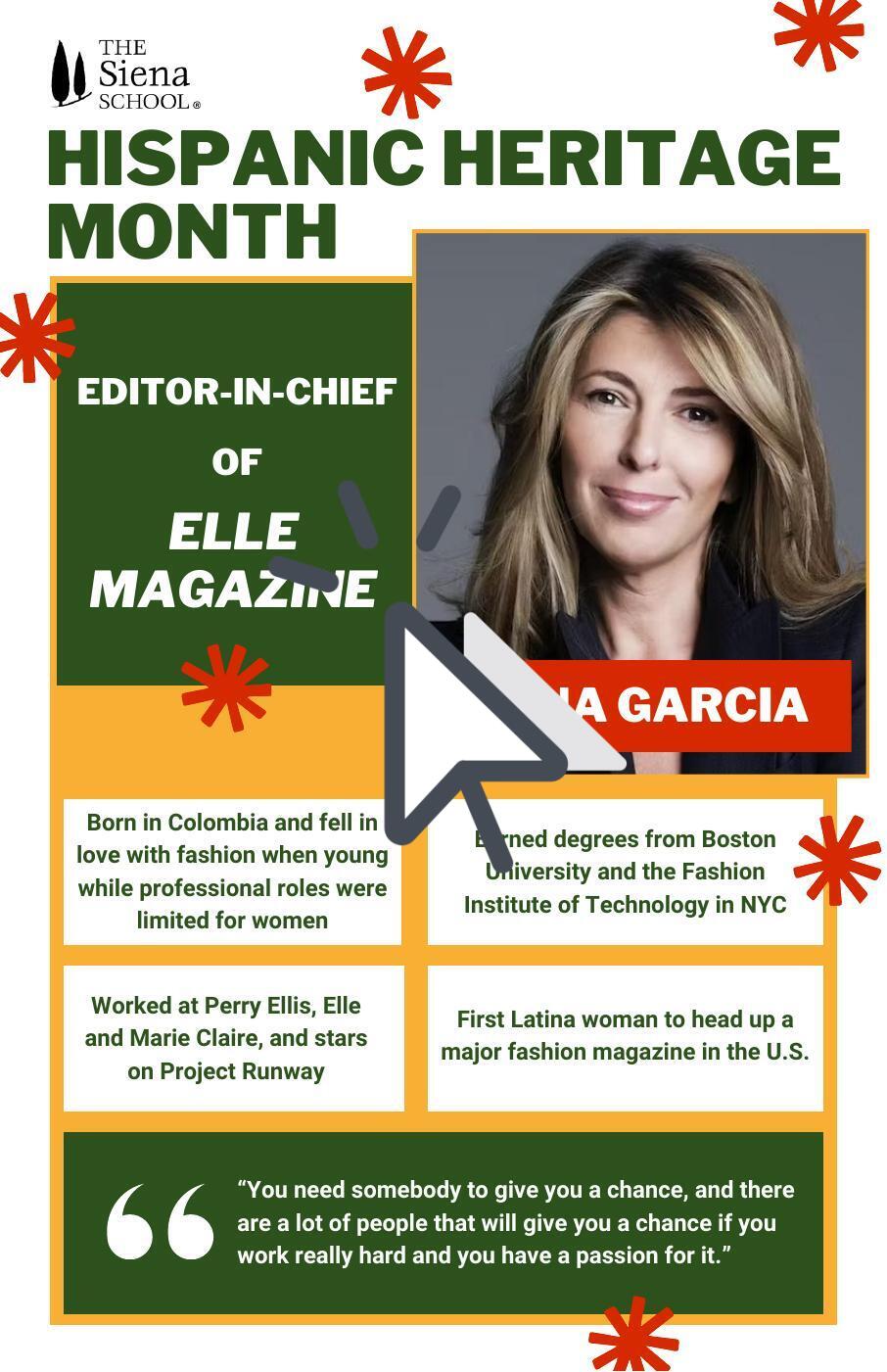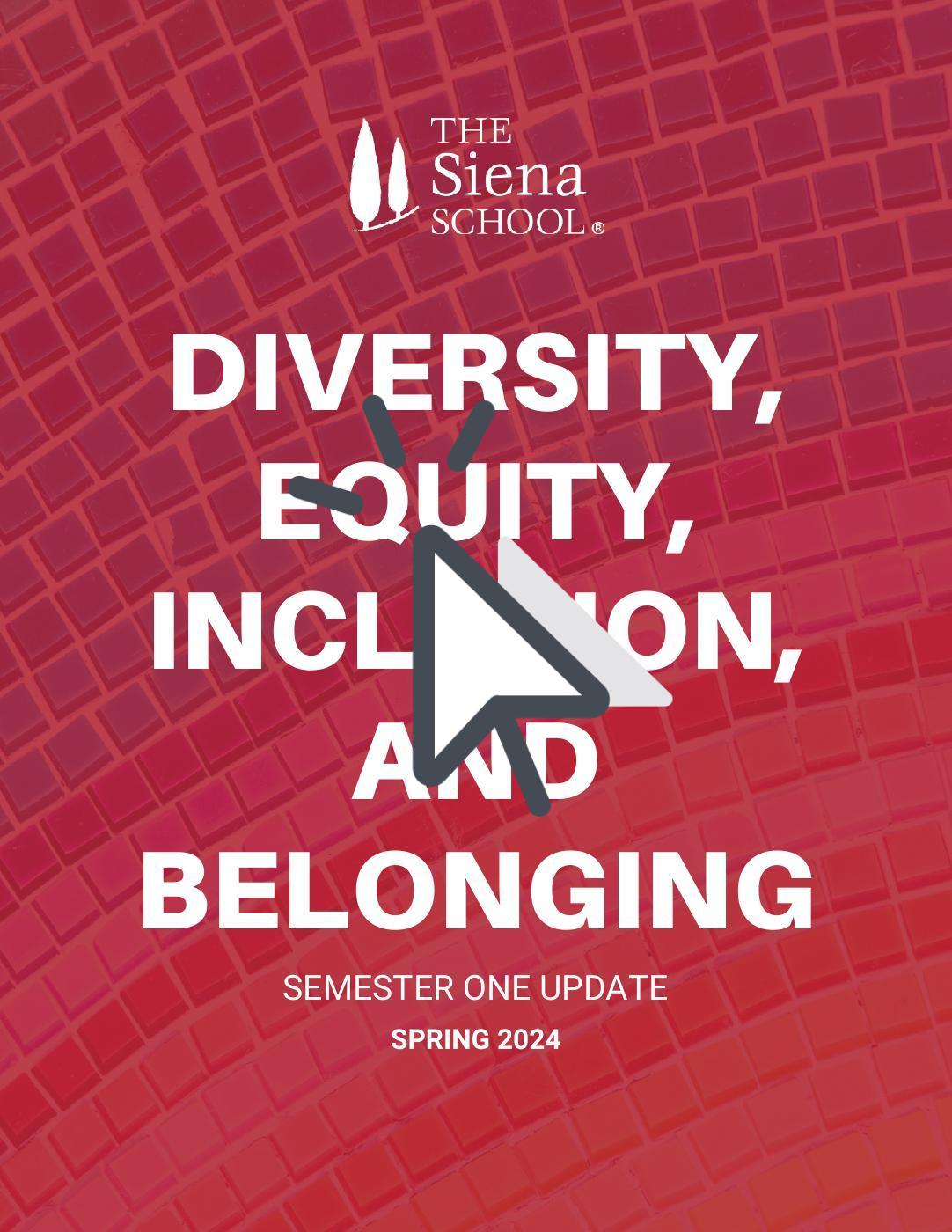Empowering students with language-based learning differences

Siena Blog



The Siena School Blog
Discover, Learn, Celebrate, and Empower
Welcome to Siena's blog, your source for helpful, cutting-edge resources tailored to teachers, parents, and other advocates in the learning differences community. We are dedicated to providing a wealth of curated knowledge spanning various topics, ranging from dyslexia advocacy and awareness to classroom teaching strategies, heritage month profiles, and social and emotional health.
National Hispanic Heritage Month 2024
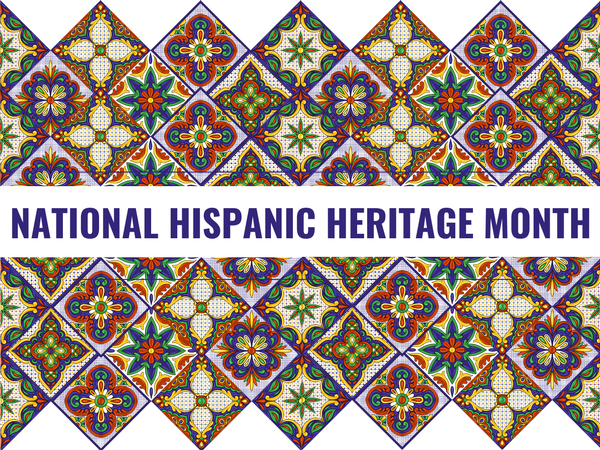
The theme for National Hispanic Heritage Month 2024 is Pioneers of Change: Shaping the Future Together.
Siena is highlighting some artistic and cultural contributions to commemorate during this important month celebrating Hispanic history and culture. See below for books, podcasts, and other resources of interest to introduce you to some pioneers of change in the Hispanic community.
Reading Pioneers of Change
Here are some recent fiction and nonfiction books by Hispanic/Latino authors to explore:
- Elizabeth Acevedo — The Poet X and Family Lore
- Kali Fajardo-Anstine — Woman of Light
- Jamie Figueroa — Mother Island
- Lin-Manuel Miranda — In the Heights: Finding Home
- Dan-el Padilla Peralta — Undocumented
- Paola Ramos — Finding Latin X
- Erika Sánchez — I Am Not Your Perfect Mexican Daughter
- Jenny Torres Sanchez — We Are Not From Here
- Alexandra Villasante — The Grief Keeper
- Javier Zamora — Solito
See also Hispanic Executive’s 10 New Releases from Latino Authors and Penguin Random House’s Books to Read for Latine & Hispanic Heritage Month.
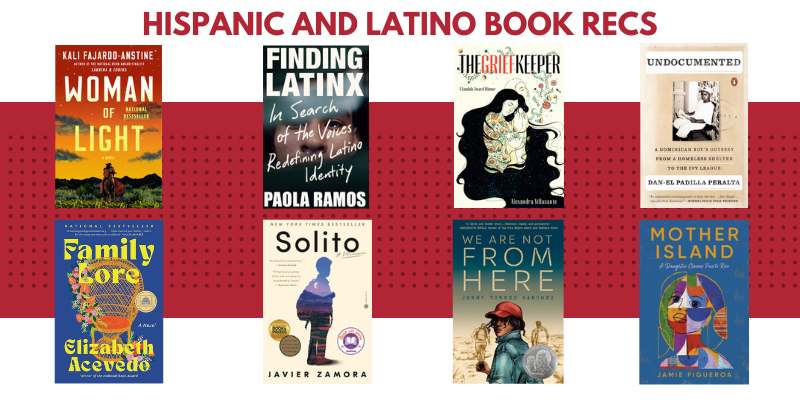
Listening to Pioneers of Change
Here are some podcast recommendation lists for various Hispanic, Latino, and other related topics to explore:
- 10 Latino Podcasts to Add to Your Queue
- 10 Podcasts for Hispanic and Latino/a Students
- 100 Best Latino Podcasts You Must Follow in 2024
- From Vegan Taqueros to a Political Scandal (NPR)
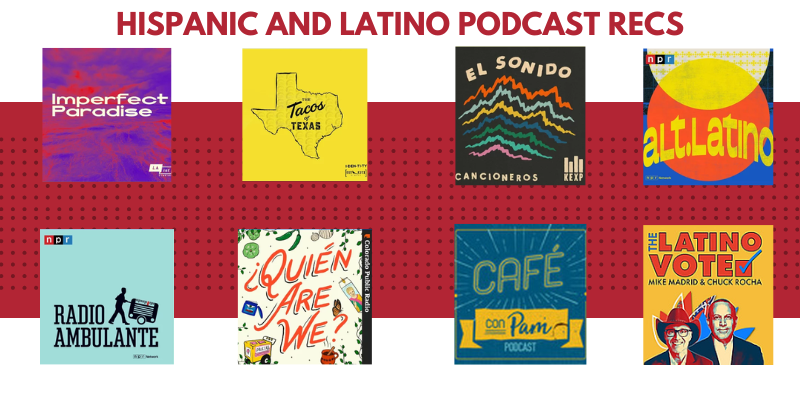
National Hispanic Heritage Month Resources
- See Hispanic, Latino, Latina, Latinx - Which is Best? from Duke School of Medicine and You Say Latino Mini Comic from Terry Blas to learn more about the evolving use of “Hispanic” and “Latino/-a/-x” terminology.
- Check the National Museum of the American Latino website for events and media coverage, and visit the Molina Family Latino Gallery at the National Museum of American History in Washington, DC.
- Explore Hispanic Heritage Month Resources from the National Museum of the American Latino and U.S. Department of Education.
Siena Resources
The Siena School blog has other Heritage Month spotlights related to innovative dyslexia education, including Native American book recommendations, Mexican writer and activist Victor Villaseñor, Chicano artist Ignacio Gomez, African American writers and dyslexia advocates LeDerick Horne and Marcia Brissett-Bailey, and others.
Learn more about Siena’s commitments and ongoing initiatives for Diversity, Equity, Inclusion, and Belonging.
The Siena School proudly serves students with dyslexia and other language-based learning differences in grades 3-12 on campuses in Silver Spring, Maryland, and Oakton, Virginia.
Celebrating Native American Arts, Culture, and History
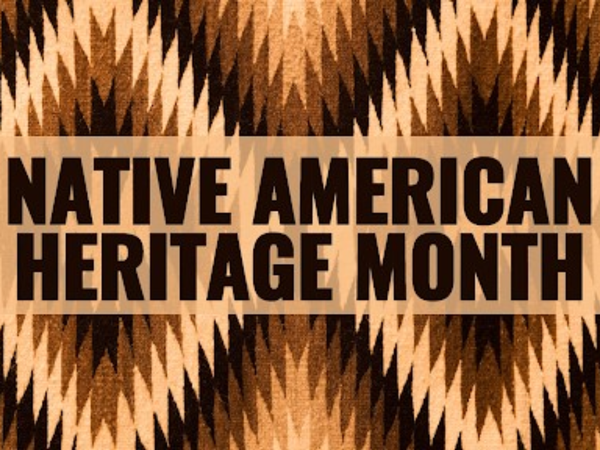
For Native American Heritage Month 2023, Siena is highlighting some artistic and cultural contributions to commemorate during this important month. See below for books, podcasts, and other resources of interest to guide you.
Native American and Indigenous Book Recommendations
Here are some recent fiction and nonfiction books by Native American and Indigenous authors to explore:
- Cherie Dimaline (Metis), Empire of Wild
- Tiara Doney (Gros Ventre and Cree), Poems of a Dyslexic Native American
- Louise Erdrich (Chippewa), The Sentence and The Night Watchman
- Ernestine Hayes (Kaagwaantaan), The Tao of Raven
- Tomson Highway (Cree), Permanent Astonishment
- Robin Wall Kimmerer (Citizen Potawatomi), Braiding Sweetgrass
- Tommy Orange (Cheyenne and Arapaho), There There
- Eden Robinson (Haisla), Son of a Trickster
- David Treuer (Ojibwe), The Heartbeat of Wounded Knee
- Diane Wilson (Mdewakanton), The Seed Keeper
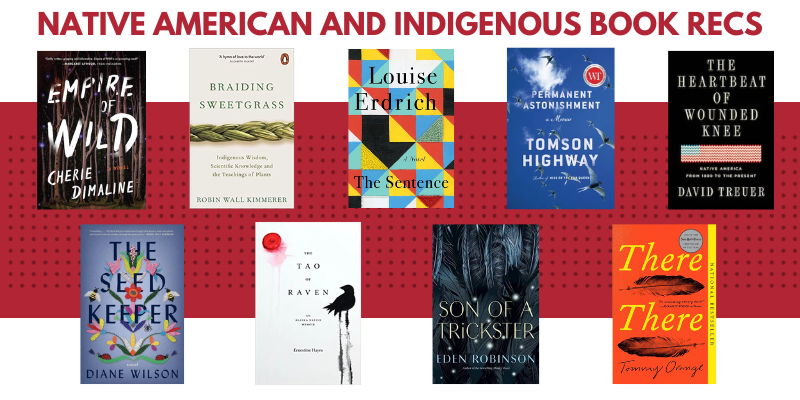
Get more Native American and Indigenous book recommendations from Book Riot, USA Today, Good Housekeeping, and Penguin Random House.
Native American and Indigenous Podcast Recommendations
Here are some podcasts about various Native American and Indigenous topics to explore:
- All My Relations
- Let's Talk Native with John Kane
- Matriarch Movement
- Missing & Murdered
- Telling Our Twisted Histories
- The Henceforward
- This Land
- Unreserved with Rosanna Deerchild
Get more Native American and Indigenous podcast recommendations here:
- 8 Informative Indigenous Podcasts
- Listen to Indigenous Podcasts
- Indigenous Storytellers: Podcasts
- 5 Native-Led Podcasts for Media Literacy
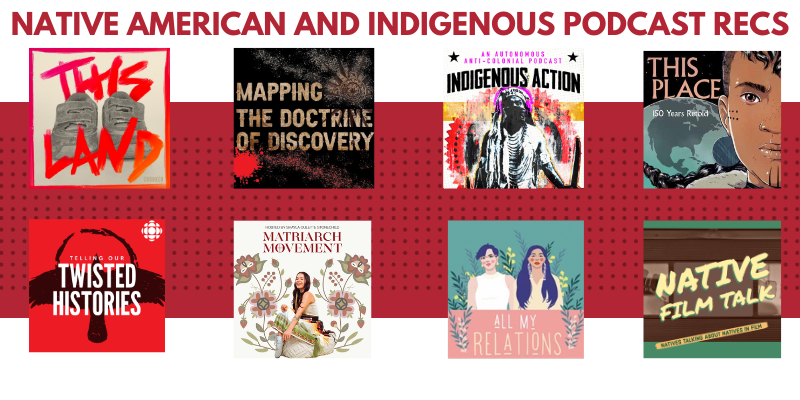
Resources for Native American Heritage Month
November is filled with events celebrating Native American history, culture, and heritage. Here are some resources to start with:
- The homepage of the National Museum of the American Indian has plenty of educational resources, exhibits, and more. See also their calendar for museum-sponsored events in Washington, DC, and New York, as well as online.
- The Smithsonian’s Native American Heritage Month page is full of events, links, and more. The National Archives has ample historical and archival information about Native American culture, including video resources and virtual exhibitions.
- The U.S. National Park Service shares information for educators and children, as well as a Rock Your Mocs photo gallery of Park Service staff wearing traditional Native American footwear in parks.
- PBS is celebrating Native American Heritage month by offering a lot of video content, such as A People’s History of Native America, What Does Electric Pow Wow Sound Like?, and Awesome Alaskan Kids.
- Mountain Time Arts in Bozeman, MT, is a nonprofit arts organization that highlights the arts, history, culture, and natural environment of the Rocky Mountain West and its Sovereign Nations. Learn more about their mission.
Siena Resources
The Siena School blog has other heritage month spotlights related to innovative dyslexia education, including Chicano muralist Ignacio Gomez, Mexican writer and activist Victor Villaseñor, WNBA stars A’Ja Wilson and Jewell Loyd, NFL star Rashan Gary, poet Amanda Gorman, and others. Learn more about Siena’s commitments and ongoing initiatives for Diversity, Equity, Inclusion, and Belonging.
Siena’s mission-focused innovative dyslexia education is designed for students in grades 3-12 with language-based learning differences on campuses in Silver Spring, Maryland, and Oakton, Virginia.
Winter Break Reading at Siena

Looking for book recommendations to support dyslexic readers heading into winter break? Let Siena’s elementary and middle school teams help.
With winter break approaching, it’s important for students—especially ones with language-based learning differences—to read for at least 20 minutes a day to keep their literacy, decoding, and related skills honed. Regular daily reading will help keep students engaged through winter break with a variety of enjoyable, teacher-recommended books, series, graphic novels, short story collections and more.
Elementary School Book Recommendations
Here are some of our elementary classes’ top book recommendations this year so far, as suggested by elementary teachers:
- City Spies by James Ponti
- Nick and Tesla’s High-Voltage Danger Lab by Bob Pflugfelder and Steve Hockensmith
- The Mystery of Black Hollow Lane by Julia Nobel
- The Greystone Secrets #1: The Strangers by Margaret Peterson Haddix
- Flunked: Fairy Tale Reform School #1 by Jen Calonita
Elementary student Ania recommends Flunked: “I thought it was really interesting, and I liked that I never knew what was going to happen next.” Ania’s classmate Grayer really enjoyed Nick and Tesla’s High-Voltage Danger Lab: “It was a good book. It was fun to read about the brother and sister making things with their uncle in his lab.”
.png)
Middle School Book Recommendations
Teachers from Siena’s middle school English and Reading teams recommend these books for readers in 6th to 8th grades:
- Miles Morales: Spider-Man by Jason Reynolds
- City of Ember: The Graphic Novel by Jeanne DuPrau (Adapted by Dallas Middaugh)
- Warcross by Marie Lu
- The Inheritance Games by Jennifer Lynn Barnes
- You Should See Me In a Crown by Leah Johnson
- The Hunger Games by Suzanne Collins
- Ungifted by Gordon Korman
- Scythe by Neil Shusterman
- Pumpkin Heads by Faith Erin Hicks
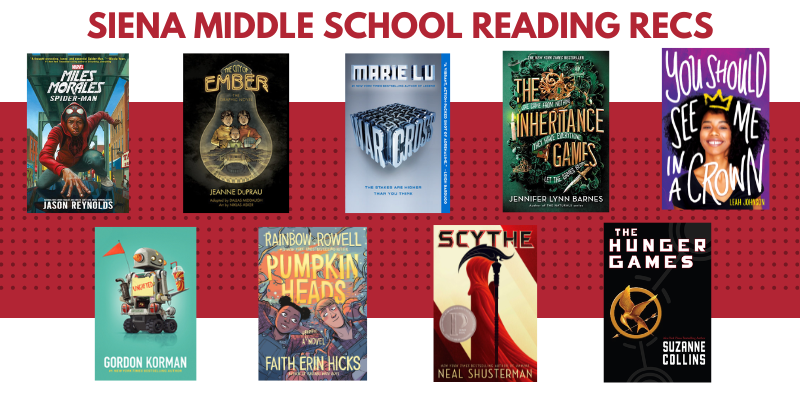
Resources for Book Recommendations
Young readers who prefer audiobooks can look for these and other books in the offerings from Learning Ally, Audible, and the Young Adult Library Services Association, among other resources.
Education consultant Ann Dolin wrote about engaging reluctant readers over summer break, including a handful of recommendations for different ages and suggestions for reading as a family. Although winter break is shorter than summer, parents could adapt some of Dolin’s ideas for their students—such as starting a book series to pique their interest in the next few weeks.
Whether it’s over winter or summer break, giving students some control over the process of selecting books when they’re not in school can motivate them to read for at least 20 minutes a day.
Here are some additional resources to help students with summer reading:
- Fairfax County Public Library Teen Events and Resources and Montgomery County Public Library For Teens offer recommendations, events, programs, and more. Check public libraries in your area for similar summer reading services for young people.
- The National Education Association offers ample resources, activity ideas, and links for families to find diverse books.
- The New York Public Library’s Staff Picks for Teen Readers goes back to Spring 2019 and lists English- and Spanish-language books. The NYPL blog also has expert-curated lists of books and other materials for school-aged readers.
See Siena’s blog for winter break podcast recommendations, summer reading recommendations, and posts about authentic assessments at Siena and about a handful of Siena alumni who’ve returned as staff members.
The Siena School, a national leader in dyslexia education, serves bright, college-bound students with language-based learning differences on campuses in Silver Spring, MD (grades 3-12) and Oakton, VA (grades 3-11).
Summer Reading at Siena
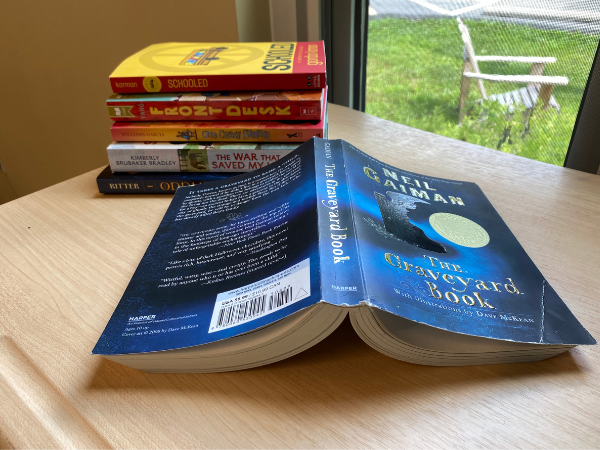
Benefits of Summer Reading
Summer reading is important for students’ academic and social-emotional development, but how can they find age-appropriate books that are also interesting and relatable to their experiences?
As this 2021 post from Scholastic points out, “Summer reading is critical, not only for helping kids maintain learning while school is out, but also for fostering social–emotional development, discovering the joy of stories, and elevating the importance of lifelong learning.”
Summer reading—even 15-20 minutes a day—helps students with dyslexia and other language-based learning differences: it will keep their reading, retention, and decoding skills sharp in preparation for the coming school year. Regular reading also helps students’ social–emotional skills by sharpening their awareness of the world, as well as increasing their empathy and ability to understand various points of view.
Getting students to read over the summer can be a challenge. But knowing what their peers have read and enjoyed can help, especially when students have diverse stories, characters, identities, and genres to choose from.
Summer Reading Recommendations for Teens and Tweens
At the end of the school year, Siena teachers shared summer reading packets, which included recommendations and class readings for students across all grade levels. Teachers typically assemble their own reading lists to share with students, and they always choose a variety of books that reflect Siena’s diverse community and curriculum. Here are some of the books Siena’s students have been reading this summer:

To further help students and parents, Siena Humanities chair and middle school English teacher Beth Fabijanic shared that the Young Adult Library Services Association (a division of ALA) offers ample recommendations for teen/tween readers, including:
- Quick Picks for Reluctant Young Adult Readers
- Best Fiction for Young Adults
- Great Graphic Novels for Teens
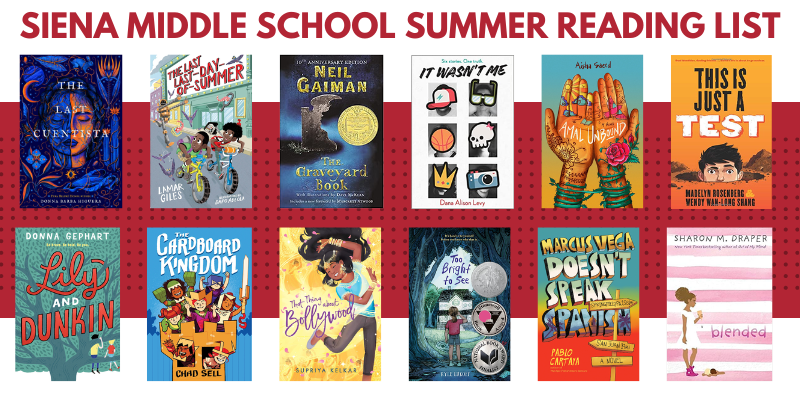
Students who prefer to listen to books—or who perhaps want to read along while listening—should also explore the audiobook selections on Amazing Audiobooks for Young Adults, Learning Ally, Audible, and Audiobook Sync (which updates free audiobooks for teens every week).
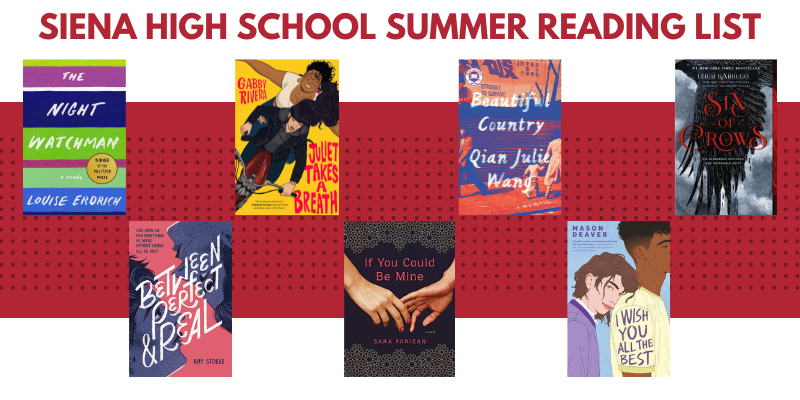
Resources for Summer Reading
“Children often react very differently when a parent or teacher tells them to do something compared to when they make a decision on their own,” this Dyslexia Resource post from 2020 observes. “When age-appropriate, encourage growing readers to develop their independence by allowing them to create their own summer reading schedule. While beginner readers should read around 20 minutes each day, leave the rest up to your student.”
Choosing their own daily reading time can give students a sense of control over the process, while the routine of summer reading can prepare them for the more structured days of the school year.
Here are some additional resources to help students with summer reading:
- Education consultant Ann Dolin recently wrote about engaging reluctant readers over the summer, including a handful of recommendations for different ages and suggestions for reading as a family.
- Fairfax County Public Library Teen Events and Resources and Montgomery County Public Library For Teens offer recommendations, events, programs, and more. Check public libraries in your area for similar summer reading services for young people.
- The National Education Association offers ample resources, activity ideas, and links for students to Get Serious About Summer Reading.
- The New York Public Library’s Staff Picks for Teen Readers goes back to Spring 2019 and lists English- and Spanish-language books.
Siena’s blog has more helpful resources for summer, including how students can improve their technology skills over the summer and how summer academics and camps can be beneficial.

